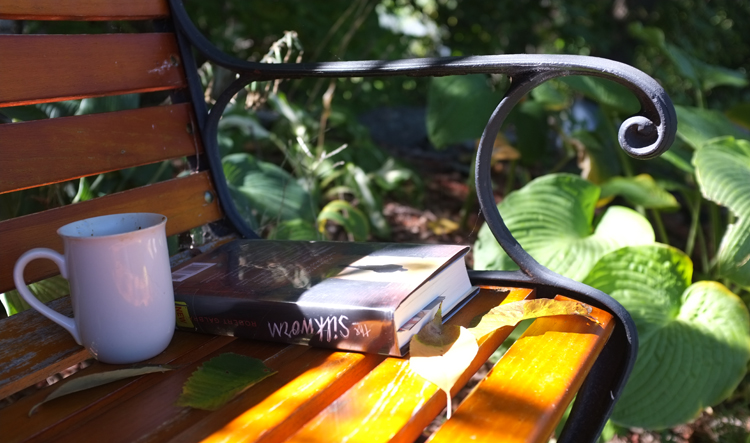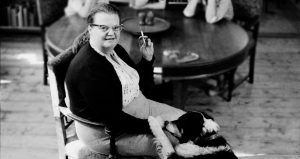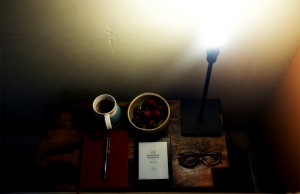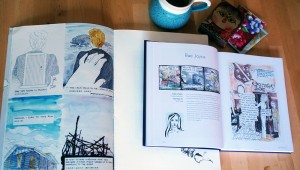 My love for reading fiction is slowly recovering after almost a decade of suffering from an unknown yet terrible, life-threatening disease. I’m relieved. It’s been so strange to be a writer of fiction who doesn’t actually enjoy reading fiction much at all. I know, right? Well, I’ve been an unsuccessful writer of fiction (understandably!), so it’s fine.
My love for reading fiction is slowly recovering after almost a decade of suffering from an unknown yet terrible, life-threatening disease. I’m relieved. It’s been so strange to be a writer of fiction who doesn’t actually enjoy reading fiction much at all. I know, right? Well, I’ve been an unsuccessful writer of fiction (understandably!), so it’s fine.
I am convinced that many of us go through this: at some point all fiction seems pointless, the product of someone feverish imagination, not worthy of our time since it doesn’t seem to enrich us in any way, either intellectually, spiritually, or emotionally. Especially after a lifelong complete, almost religious devotion to reading, it’s a bad place to be in. I suppose this happens more in our day and age when we benefit of really good TV shows that cover all our escapism/relaxation needs. Reading requires more effort than TV, and many times it doesn’t feel like it’s worth it. Because there is an overwhelming number of books being published lately, some of them of really doubtful quality. While TV is getting better and better. Series like True Detectives, The Returned, Hemlock Grove, Jekyll, Midsomer Murders, or Wallander can teach many writers quite a few lessons about storytelling techniques. True, some of these are based on books, but some are not, and yet their quality is beyond question.
I’m reading now The Silkworm of J.K. Rowling as Robert Galbraith, and I love it. It’s captivating and atmospheric and better than TV, although I’m sure it would make a good TV series too. It was fun to notice that she introduced a rant by a male writer about women writers:
“I said that the greatest female writers, with almost no exceptions, have been childless. A fact. And I have said that women generally, by virtue of their desire to mother, are incapable of the necessarily single-minded focus anyone must bring to the creation of literature, true literature. I don’t retract a word. That is a fact.” (The Silkworm, Robert Galbraith)
I have discussed the issue of women writing and having children in the same lifetime another time on this blog, and I don’t feel like going into that again today, because I have a feeling that more self-pity would be involved, with my being so overwhelmed by toddler care these days. But it is something to (always) think about.
In the meantime fall has taken over our part of the world. And it came with beautiful light that covers everything we see in amber and honey. Books and golden light. Should be enough to make one happy. Or, you know, content. For a short, aware moment.
Books and golden light. Should be enough to make one happy. Or, you know, content. For a short, aware moment.




I think I go through crushes on one genre or another. Right now I’m on novels, but I’ll be back to poetry before too long, no doubt. I like to read an article or some non-fiction every day. I wouldn’t be a good writer if I didn’t read anything and I would be a completely shite writer if I didn’t have kids, I think. The limitations on my time mean that I have more thinking than “doing time, so when I do get to do, I am really ready to do, and do I do 🙂
Aside: how do you keep your hostas slug free?
That’s a very interesting perspective, Rachel, that you have more time to think and less time to write it down. I like that. It’s very true.
As for the hostas, I have no idea how they’re striving. We are not helping them in any way, that’s for sure. But they do look beautiful this year.
And…now that I’ve had a few moments to look at your other blog post, it looks like the article I found in The New Yorker is actually about the one from The Atlantic that you referenced in your post. And now that I’m mulling it over even more, I’m thinking about what J.K. Rowling was thinking when she was speaking through that male voice, what truth she reveals through that fiction.
Yes, I don’t know if I had read The New Yorker article though. I should update the old post with a link to this one too.
I don’t now what J.K. Rowling was thinking. She must be so sick of feeling like she has to hide her gender in order to be accepted as the brilliant writer that she obviously is. It is possible that she had a real life writer model for this character and she was putting in his mouth words that she had actually heard in one form or another. I don’t know.
It’s funny, but I mostly write nonfiction but I much prefer to read fiction. I find it often even more relevant than nonfiction. I just read a fantastic and compelling essay by David Jauss, the first chapter in his book Alone With All That Could Happen about how often fiction is more “true” than nonfiction. Maybe that’s why I never tire of reading fiction (or maybe it’s because I don’t watch TV).
I’ve rejected the idea that all of the great women writers were childless. Look at Margaret Fuller, Toni Morrison, Maya Angelou (all of whom spent at least part of their child-rearing time as single mothers, as did J.K. Rowling herself), Sylvia Plath, Joan Didion. And that’s just off the top of my head. That doesn’t mean that it’s easy to be a mother and a writer, and it doesn’t mean there’s societal support for that path, just that it’s not really true that all of the great women authors had/have no children.
A New Yorker article I found while fact-checking my mother-writers information: http://www.newyorker.com/books/page-turner/writers-and-the-optimal-child-count-spectrum
From the article: “As both Smiley and Smith point out, the key—nothing so occult as a secret—to their ability to marry motherhood and writing has been adequate child care, which remains the desideratum of every working mother, whether she’s a writer or something else. Any person’s independent productivity depends not upon the head count of her children but the sum of her free hours.”
And now I need to go and round up my kids…
I think I can get the idea why fiction can be truer than non-fiction. But a while ago I don’t know if I could have gotten behind it. But you know, fiction is what makes literature art and what makes writing such an amazing form of expression. Maybe, I am considering now this possibility, one problem has been that I grew up reading Russian, French, German literature, and some English, but not much, and then I switched almost entirely to English authors (American in particular), which was maybe too abrupt a change. I don’t know.
And yes, adequate childcare . . . that will always be the dream. But then I remember feeling rather judgy of Agatha Christie who benefited from a good fortune and proper childcare providers, and she left her daughter alone all the time. It didn’t feel right by my modern mothering standards, although I know that in that era women of her social class used to barely spend any time with their own children.